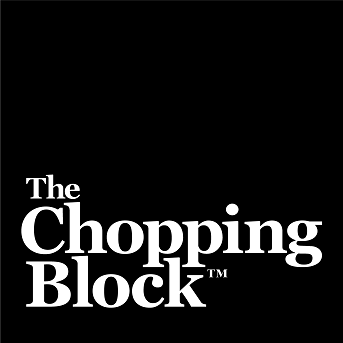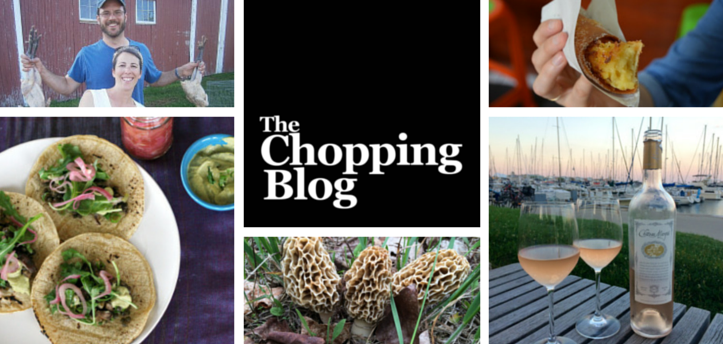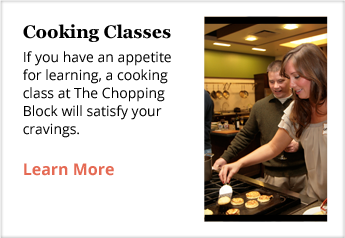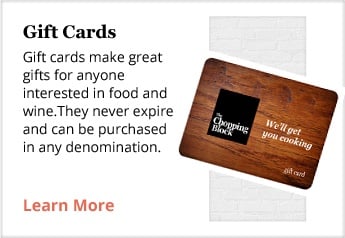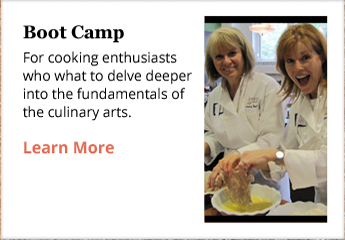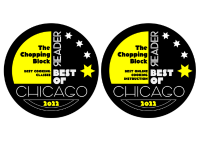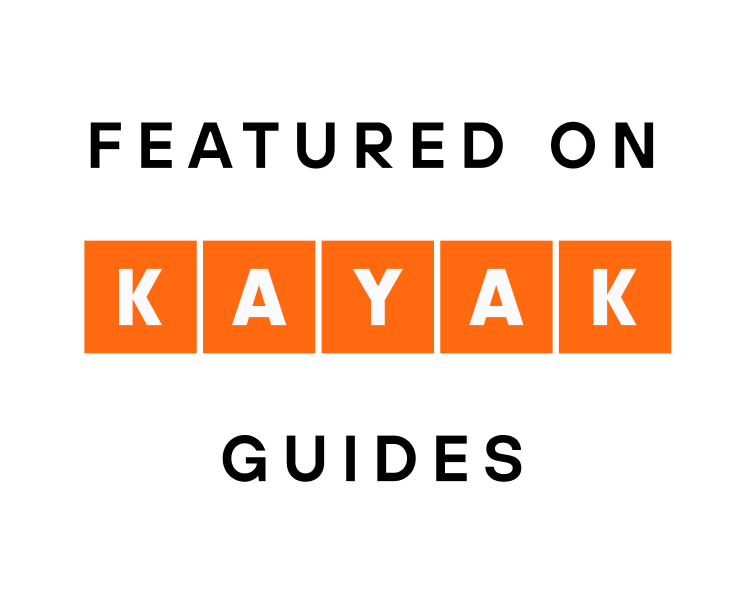If you are on any type of social media, you've seen the barrage of sourdough bread images posted since the beginning of the pandemic. Some of these pictures of beautifully baked bread could come straight from an artisan bakery's display window. But I'm guessing there's a whole lot of #fail pics that didn't make the cut online. If you are interested in learning more about sourdough, the holy grail of bread baking, this is the start of your journey.
Sourdough is bread that is slowly fermented and does not require commercial yeast for it to rise. Instead, a live fermented culture, called a starter, acts as a natural leavening agent. But it's the texture and taste that calls people to learn about sourdough. It has a tangy flavor, chewy texture and crisp crust.
We know The Chopping Block's students are curious creatures, so we sought out the best of the best to teach a very special upcoming virtual demonstration class on sourdough bread.
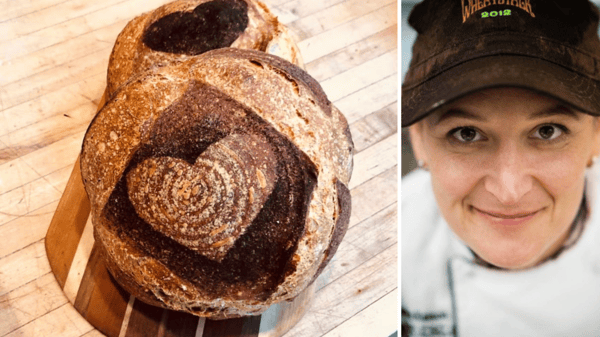 Chef Melina Kelson is a Certified Master Baker, Certified Bread Baker, Certified Viennoiserie Baker, Certified Executive Pastry Chef, and a Certified Hospitality Educator. She taught Culinary Arts for 18 years and created the Artisan Bread and Viennoiserie programs at Kendall College in Chicago. She also served on the Board of Directors of the Bread Bakers Guild of America for a dozen years. She currently operates Bootleg Bâtard, a microbakery in Skokie, IL. And if you've ever had a loaf of her wood-fired bread, you know how absolutely delicious it is!
Chef Melina Kelson is a Certified Master Baker, Certified Bread Baker, Certified Viennoiserie Baker, Certified Executive Pastry Chef, and a Certified Hospitality Educator. She taught Culinary Arts for 18 years and created the Artisan Bread and Viennoiserie programs at Kendall College in Chicago. She also served on the Board of Directors of the Bread Bakers Guild of America for a dozen years. She currently operates Bootleg Bâtard, a microbakery in Skokie, IL. And if you've ever had a loaf of her wood-fired bread, you know how absolutely delicious it is!
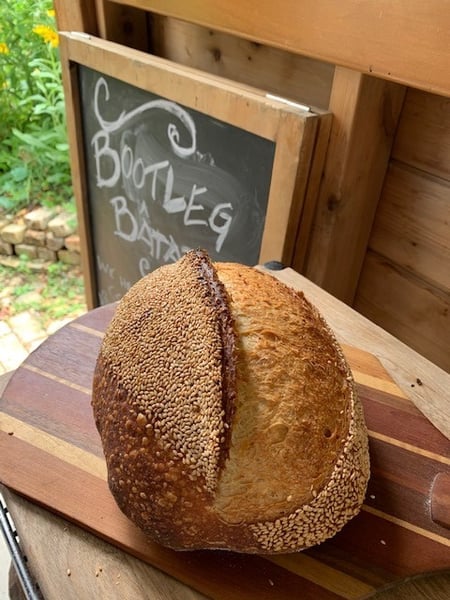 Melina was kind enough to talk with me about what students can expect from her upcoming class and bread baking in general.
Melina was kind enough to talk with me about what students can expect from her upcoming class and bread baking in general.
We’ve seen a huge increase in bread baking during the pandemic. Why do you think this is?
Bread baking takes time and attention and because people lead busy lives, it’s not something that is always woven into a day to day routine. With the pandemic, people have more time on their hands, but there is also an urge to demonstrate resilience and self-sufficiency a little bit more. There is something very primal in producing nutrition from four simple ingredients and creating delicious food with such good sustenance and so little.
People are also getting really tired of their own cooking and are looking for inspiration. They may be looking for ways to shake up their routine, and perhaps they have more time to do something that might be new, such as make bread. I think creating and nurturing a sourdough starter is relatively low maintenance and yields a great number of benefits.
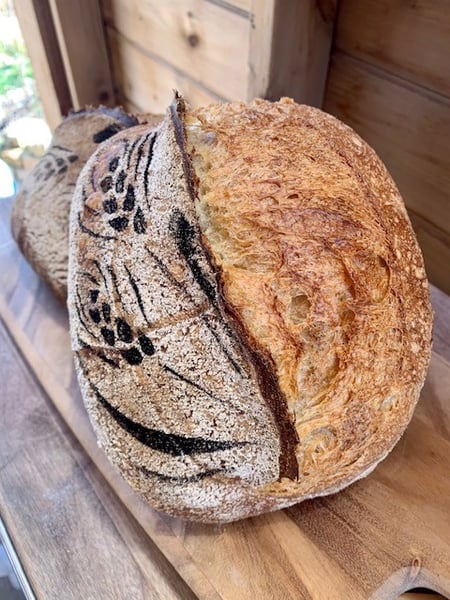 Why do home cooks have trouble baking bread at home?
Why do home cooks have trouble baking bread at home?
I think bread baking is a lot more like savory cooking than pastry. Once you realize that you are really interacting with the thing that’s in front of you, you understand that you need to touch it; you need to relate to it. You need to abandon the instructions and then you can make great bread.
People say I’m either a baker or a cook. Those who say they don’t like baking say they don’t like measuring ingredients and following instructions. I do think that people approach bread baking with that spirit and they absolutely shouldn’t. It’s much more like working with a vegetable that’s in front of you, where you want to react to what’s in front of you rather than what the recipe says. If the recipe says to cut it a certain way and the vegetable is shaped to be cut a better way, you are going to make that choice and not think twice about it.
And every time you are baking bread it’s absolutely different. You need to be engaging and react to what you are working with, rather than trying to control it. It’s a very living object. It’s like trying to control your kid or your dog. You have to consider: how is this thing behaving that’s in front of me?
The reality is that cooks tend to make better bread bakers than pastry chefs. Bread baking is a very tactile experience which is very different than pastry where you are interacting with your medium through a spatula or through a piping bag, rather than handling it directly.
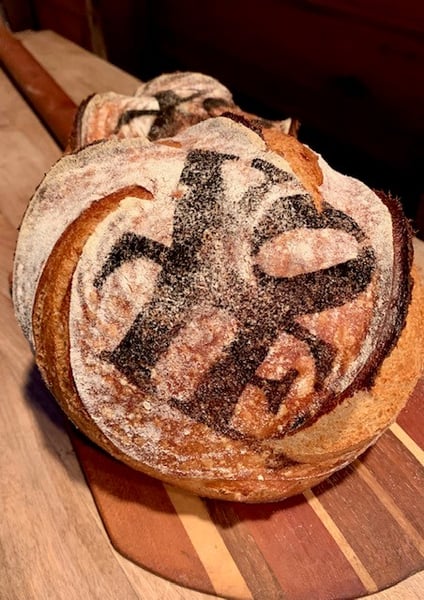 So, how does a home baker learn how to become intuitive?
So, how does a home baker learn how to become intuitive?
It’s all about learning the rules of engagement. How do you become an intuitive driver? You practice, you think about different possible routes, and you try different ways. But practice is just a piece of it. You need to know the rules of the road before you can gain the confidence to even start practicing.
When I created the curriculum for the upcoming sourdough bread class, I sat down and wrote out the 12 steps of yeast dough production. That determines everything that I do. Once you understand that A becomes before B which becomes before C, you have a lot more freedom and wiggle room to work with your bread.
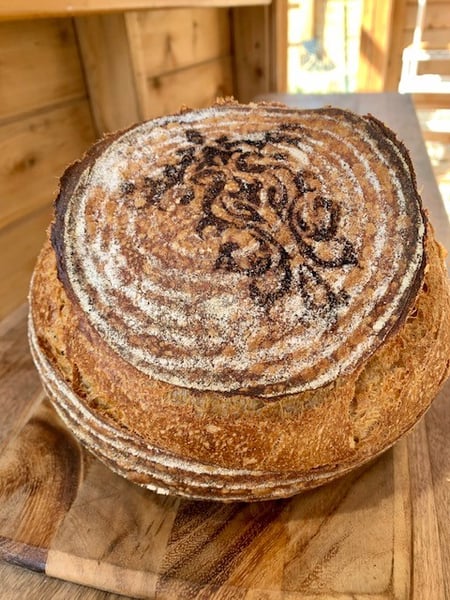 What can students expect from your bread class?
What can students expect from your bread class?
I am going to demonstrate the sourdough process from start to finish. I will take the students all the way through how to begin and maintain a sourdough starter to mixing dough by hand or by machine. We'll cover fermentation, dividing and shaping, proofing and baking. I will have doughs and breads made to show you the different stages of production, but I will guide you through the entire process.
Why do you recommend students watch this class as a demonstration rather than try to make bread along with you?
It takes 30 hours to make sourdough bread, and I’m not going to be with you that long! When you are doing instead of actively listening, you aren’t learning the same way. I’m a believer in applying your knowledge right away but not necessarily as you are learning. It’s like being in a conversation where you are anticipating what the other person will say; you aren’t really listening. Two hours is a really short period of time to teach bread, even in a demonstration class. Attending with your mind will be critical to gaining the experience. Then, you can go off and practice!
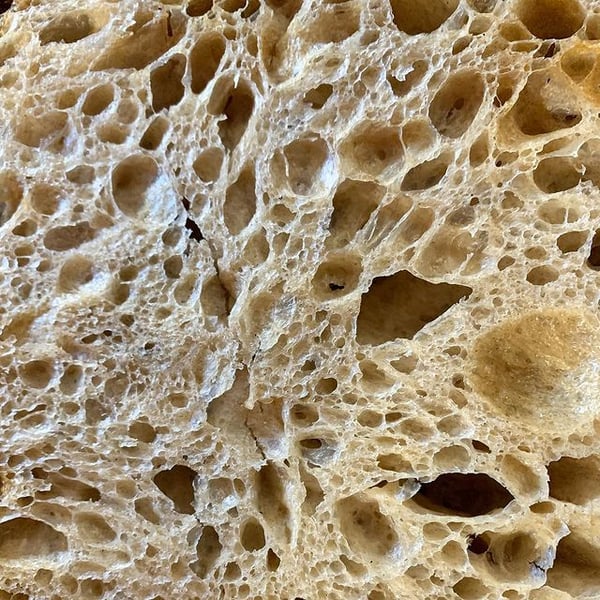 Tell me why you love baking bread so much.
Tell me why you love baking bread so much.
I love that bread is different every single time that I bake it. I am having an active relationship with what I’m working with, rather than going through rogue motions. I like the puzzle pieces of bread baking, and being a wood-fired baker adds a whole different texture to the fabric. I have to map out the temperature I believe the oven will be at and how quickly it will lose heat, and I have to time the fermentation to that. For me, that's really fun because the learning never stops.
Sourdough is not well understood. It’s constantly being studied, and it's evolving scientifically in our understanding. We’ve been producing sourdough bread for 6000 years, and there’s so much more to learn and so many more ways it can be manipulated.
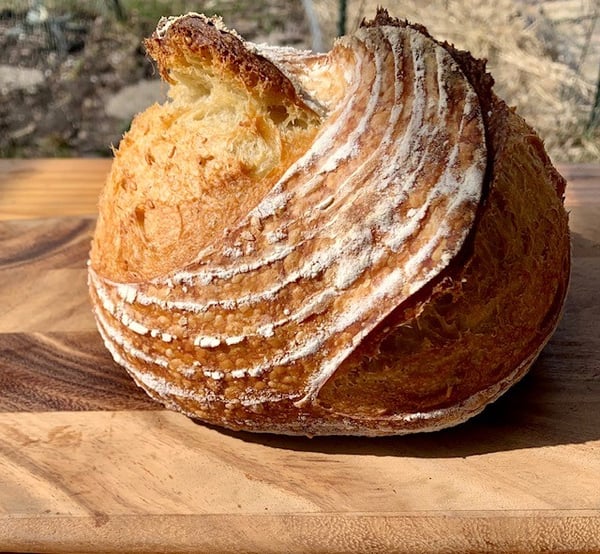 How do you keep up with the changing knowledge about bread?
How do you keep up with the changing knowledge about bread?
I'm very involved with the Bread Bakers Guild of America, which it’s extremely important to me because it's a teaching and training ground. It has classes, chat rooms and a national conference where you are learning from other bakers. That support network is really important.
Thirty percent of the guild is made up of home bakers, people who are dedicated to learning all they can about bread. Some people simply bake bread for their kids, yet they are able to ask the captain of Team USA why he does something a particular way and get answers.
I am also a big patron of my public library, and I’m constantly reading any new literature that comes out.
Why shouldn't someone rely on social media to learn how to bake bread?
I certainly draw inspiration from social media, but I really try not to consider it a factor too much, because that isn’t an accurate reflection of reality at all. If something looks good but isn’t delicious, I’m not really interested in it. Instagram shows you all of the successes but none of the struggles or failures.
There isn’t always good information or recipes associated with the posts. Social media is potentially dangerous because everyone believes themselves to be experts and without any vetting, people end up with a lot of misinformation about bread baking.
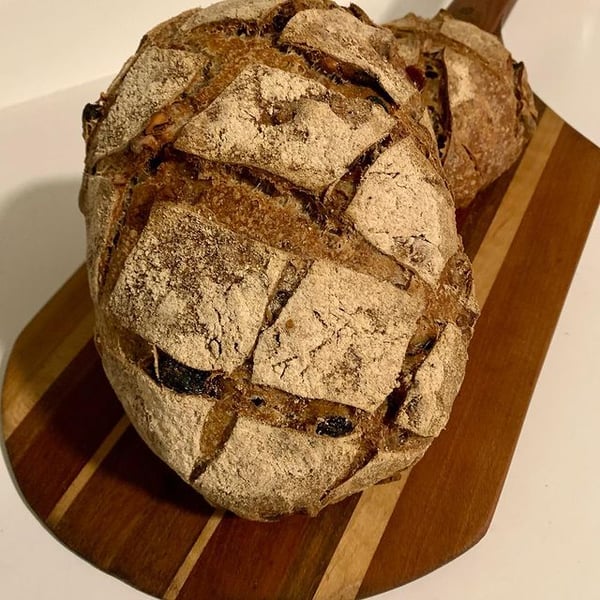 What's your top recommended resource for someone just starting out in bread baking?
What's your top recommended resource for someone just starting out in bread baking?
I cannot recommend Jeffrey Hamelman’s The Book of Baker’s Techniques enough. I used it as my textbook when I taught, and I even have an endorsement printed on the book. This book lays all of the information out in an accessible way, the science is correct, and the terminology is consistent with what is used by professional bakers.
Tell me about what's going on with Bootleg Bâtard.
Bootleg Bâtard has been operating since 2012 in earnest, but my business pivoted very dramatically as a result of the pandemic. I had planned on opening a brick and mortar store in March 2020 but obviously, that's been delayed.
What happened though, is people started panicking because there was no bread to buy in grocery stores. I started getting all of these calls and texts from my customers wanting bread, so I just started baking. Pushing the retail end of the business into my home has been somewhat strange, but it's also nice to see friendly faces pick up bread two to three times each week.
If you are interested in spending two hours with the very knowledgeable and interesting Chef Melina Kelson, you cannot miss The Chopping Block's special virtual demonstration class on Sunday, April 11 at 1pm CST. In two hours, you'll get everything you need to know in order to bake sourdough bread successfully in your own kitchen.
All of the beautiful photos in this post are credited to Bootleg Bâtard.
